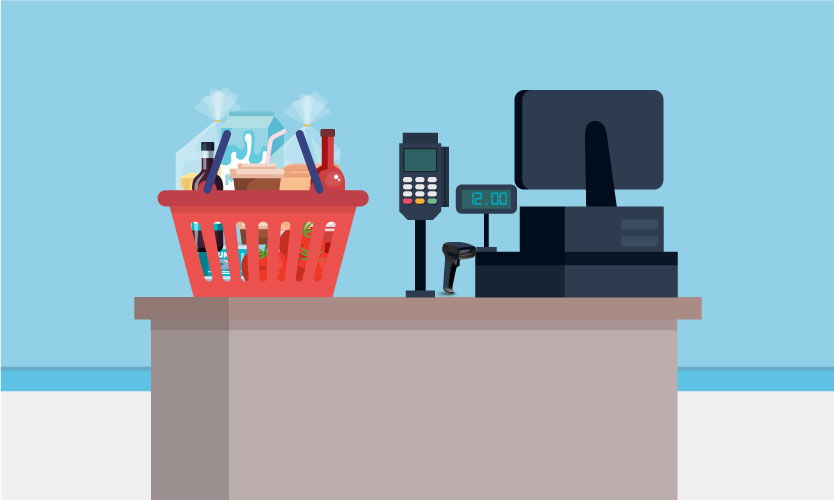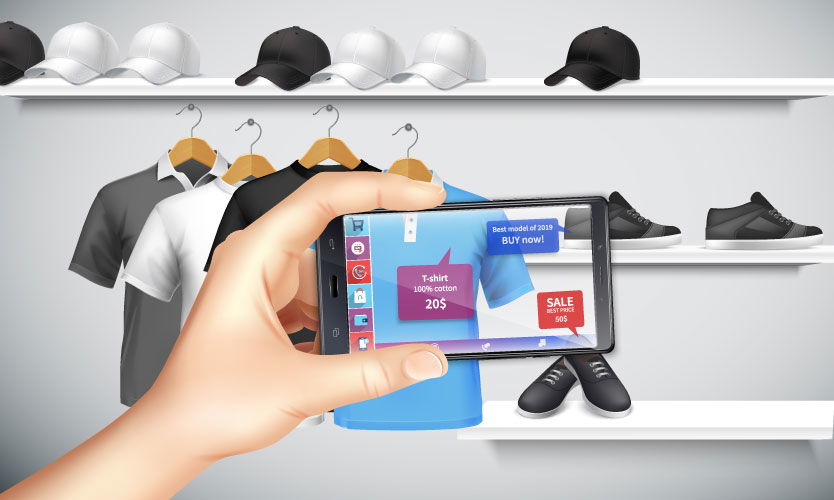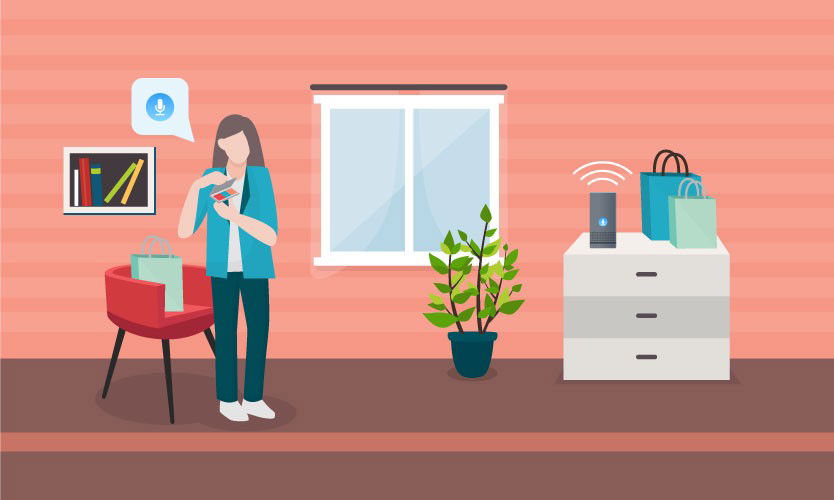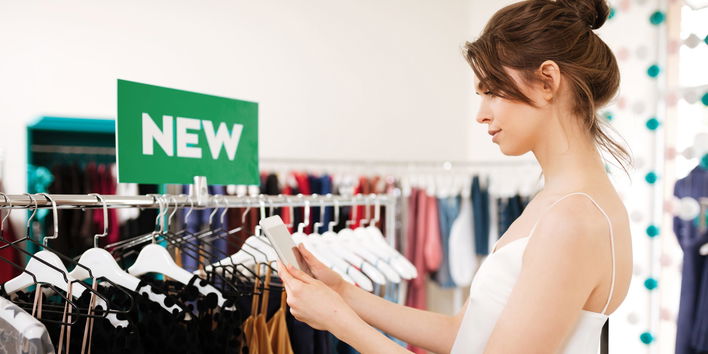The modern technological advancements needed to be more in focus when the world was hit by invisible enemy i,e. the Covid-19 pandemic. This virus didn't just change the way we live; it changed the retail industry's whole perspective. Yes, it turned the tables, but with that, it also forced businesses to work aggressively towards technological innovations.
The worldwide covid-19 active cases are enormous and changing daily.
In the industry that merges business models with technology, we saw some potential retail technology trends that will be driven by consumer habits in 2020 and beyond.
In this article, we will focus on technological trends that will, one way or the other, shape the retail industry in the upcoming years. Before delving into the article and covering the trends, we would like to help you with something constructive. We are sure that this information will come in handy for the decision-makers or the business leaders.
Why must you track consumer habits?
Consumer habits or consumer behavior data is a crucial point for business owners as it lets them pinpoint what the end-user wants and direct their resources towards it.
Gathering consumer behavior data gives retailers a better understanding of their needs. By measuring and analyzing consumer behavior data, they can plan better engagement strategies leading to better revenue and ROI, which, no doubt, is always a good thing for the long run.
What data should businesses gather?
That brings us to the next question. Here is a list of essential items that businesses must keep in mind while deciding their data gathering strategies.
- Are you planning to segment your customers? If yes, what are the key factors?
- Are you planning to collect real-time behavior of your customers?
- Are you going to obtain customer service records?
- Will you track the referral sources?
- Are you going to track their preferences?
- Are you planning to track their onsite activities?
- Will you collect the demographic information?
Once you answer these dotting questions, you will be able to make better sense of your consumer behavior data and deliver better services. This will help earn customer loyalty for your business.
What are the technology trends that get influenced by consumer habits?
People use online shopping more frequently, and it will become a norm even after the pandemic. - Supermarket News
As we mentioned earlier, Covid-19 has urged people and businesses to think differently. And the changes won't stop with this; they have to think about the future. This where the trends come in and let the businesses know about consumer habits.
What are these trends that will shape up the retail technology industry?
Let's take a look at the technology trends that will allow retail businesses to provide smooth, safe, and seamless shopping experiences.
1. POS systems that interact with e-commerce

The majority of the businesses are pushing their sale over the e-commerce platforms and optimizing their POS in sync with it during the Covid-19 pandemic. Even after the pandemic, businesses will be highly inclined towards a fully integrated POS and e-commerce solution, especially if they have both brick-and-mortar and online sites. They will need a solution that synchronizes online and offline transactions, inventory, and promotional offers.
2. Using Machine Learning for demand forecast

Retail businesses already realize the use of big data analytics with the use of machine learning-powered demand forecasting. In comparison to traditional forecasting methods, ML is more comfortable to adapt and implement. You will be amazed to know that retail businesses can optimize their demand forecast with
- NLP and cascade models
- POS data
- Data from external sources
This enables retailers to enhance their demand forecast accuracy and makes ML the most sought-after technological trend in these trying times.
3. Augmented shopping for a safer shopping experience

Yes, we know that this is not a new technology, but it is a trending technology in the wake of social distancing. The isolation caused because of COVID-19 quarantine rules has rapidly been pushing the AR systems' demand.
When taken virtually, the try-before-you-buy approach allows retailers to provide that seamless and safe shopping experience we previously talked about.
British fashion brand Hunter has set up a multi-sensory space that lets shoppers enjoy a rainy London. On the ceiling, there is a digital lightbox that creates a typical London cloudy sky. Simultaneously, the loudspeakers playing the sound of heavy rain and thunderstorms allow their customers to experience the London weather while shopping.
In Hong Kong, Audi has set up a VR experience for its fans who explore the brand's full range of luxury cars and even the concept of vehicles. The technology also enables customers to take a virtual test drive.
Take IKEA and Amazon, for example, using ARKit-based apps that help customers visualize what their new furniture will look like using their smartphone cameras around the room; in real-time!
4. Personalized online interactions with data-science

35% of its sales are driven by its recommendation engine - According to Amazon
Data Science and machine learning technologies allow businesses to take personalization one step further with advanced personalization tools. Retailers can now decode and provide personal recommendations to customers using these tools.
With the help of machine learning, businesses can now get their recommendation system that collects information on similar customers and develops various shopping profiles. Based on this, retailers can easily tailor call-to-action for specific users and enhance the buying experience.
The in-store options are quickly catching up with online ones with the help of Bluetooth Low Energy and RFID. For example, FashionAI, built by Alibaba Group, generates personalized apparel recommendations for shoppers as they move around the store. Now take this one notch up and mix it with the virtual shopping point we mentioned earlier, and the capabilities become endless.
You have seen how various websites now have made their chatbots available for the consumers. There is no doubt that NLP-based chatbots are getting smarter with each passing day and allow retailers to provide more personalized experiences.
5. Cashless and staff less shopping

87% of customers would likely choose stores with contactless or self-checkout options - Shekel Brainweigh Ltd
The covid-19 pandemic has made one thing clear; social distancing is the safe word and will allow countries to prevent the widespread coronavirus infection. In such a time, most retailers are looking for cashier-less and staff-free solutions. These are the tools that will reshape the retail landscape
- RFID tags
- Computer vision systems
- Machine learning
- IoT devices
- Facial recognition
Have you heard about the Just Walk Out system that was developed by Amazon? It is a cashier-less system powered by computer vision, sensor fusion, and deep learning. This system enables customers to come to the store using a credit card. The plus point is that users are not forced to download another app in smartphones, and it doesn't even require an account. Customers can simply put their items into a physical shopping cart; an IoT-based system will track them in a virtual cart. When the customer decides to finish the shopping spree, all the purchases are deducted from the customer's credit card once they move out of the store.
The Just Walk Out system uses the Amazon Go Grocery model as its underlying technology where both RFID and Bluetooth are used for providing a check-out free shopping experience. Modern technology partners like Rapidops can take it one step further by developing a touch-free shopping system.
Customers can receive information on various products using the built-in scanner app in their smartphone, reducing any direct or unnecessary interaction with their surroundings.
6. The advent of voice commerce

60 million people now have at least one smart speaker system at home - NPR and Edison Research
Voice-assisted technologies are helping the sales process boom through voice recognition technology in retail and e-commerce. In voice commerce, customers use voice commands for finding products. Based on the voice-recognition technology, Walmart Voice Ordering service was created where the customers can place their orders using voice commands.
The best part is that customers can use Google Assistant or Siri for saying, "Hey Siri/Google, add to Walmart," and their products are added to the cart.
7-Eleven Inc. added a Voice Ordering feature to its 7NOW Delivery app while using Google Assistant or Amazon's Alexa. All the customers need to say is, "Hey, Alexa! / OK, Google! Open 7NOW.", and order the products through the voice commands. After receiving the payment, customers get their orders delivered within 30 minutes.
These are just the tip of the iceberg on how retailers can use the technology trends based on consumer habits.
Why must you act on these trends?
The COVID-19 pandemic has brought many challenges, but it has shown us that social distancing and isolation can take a toll on humans mentally, physically, and financially.
For many businesses with big pockets, adapting to these technology trends is easy. Various digital transformation partners can bring you up to speed with the market and ensure your business's longevity.
The bottom line here is that adapting the best technology as per your forte is necessary for your survival. After all, you are part of the economic chain, and your customers depend on you to deliver. There is a lot of opportunity for companies that are ready to accept and implement modern retail technology innovations to survive in a competitive market.
Conclusion - Choose an established digital transformation partner
The retail ecosystem has various niches that are yet to be monetized. With more traction in the acceptance of digital transformation, data-centric cultures will continue to displace legacy systems.
As a business, you must bring together customer preferences, new technologies, and supply chains into the customer experience mix. This will allow consumers to engage with your brand, get access to your products from anywhere, and have a value-for-money experience.
Decision-makers in the retail industry are on the lookout for various ways to provide a unique experience to their customers and build a lasting relationship.
You need a bankable digital transformation strategy that gives you a faster ROI and helps you see the result sooner. You can chat with us if you are looking for a digital partner who can help you implement upcoming retail technology trends and shape your business's future.
How will Rapidops help?
Rapidops is a digital product development solution provider that has helped various businesses successfully achieve their digital transformation goals. Be its cutting-edge technology for developing future-friendly applications or connecting your website with your modern apps. We have guided our customers from the inception of their idea to successful digital product deliveries, with better ROI.
Our apps are developed with a simple motto; help the business deliver excellent customer experience or personalized shopping experience. The backbone of digital product development strategy is based on our expertise in the use of AI, ML, and a vision for customer success, retention, and business growth.
We are striving every day, delivering the "real" impact of digital transformation, such as voice-based search in the retail shopping landscape, for providing exceptional experiences to millions of customers.
Let's chat for a free consultancy on how Rapidops transforms digital experiences for it's customers and provide them with all now futuristic opportunities.

Saptarshi Das
Content Editor
9+ years of expertise in content marketing, SEO, and SERP research. Creates informative, engaging content to achieve marketing goals. Empathetic approach and deep understanding of target audience needs. Expert in SEO optimization for maximum visibility. Your ideal content marketing strategist.

Let’s build the next big thing!
Share your ideas and vision with us to explore your digital opportunities
Similar Stories
- Trends
- undefined Mins
- May 2021

- Trends
- undefined Mins
- April 2022

- Trends
- undefined Mins
- March 2017


Receive articles like this in your mailbox
Sign up to get weekly insights & inspiration in your inbox.
